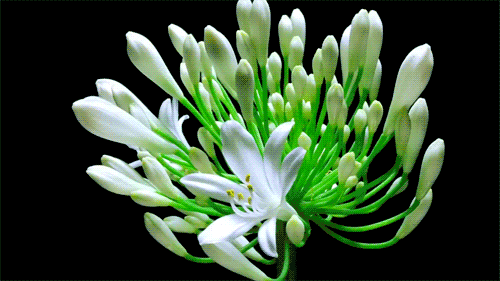-
Comment August 13, 2015
-
In a deep relationship
Comment August 13, 2015In a deep relationship, there’s no longer a boundary between you and the other person. You are her and she is you. Your suffering is her suffering. Your understanding of your own suffering helps your loved one to suffer less. Suffering and happiness are no longer individual matters. What happens to your loved one happens to you. What happens to you happens to your loved one.
In true love, there’s no more separation or discrimination. His happiness is your happiness. Your suffering is his suffering. You can no longer say, “That’s your problem.” ~Thich Nhat Hanh
-
Offer only understand and compassion
Comment August 13, 2015If you do not know how to take care of yourself, and the violence in you, then you will not be able to take care of others. You must have love and patience before you can truly listen to your partner or child. If you are irritated you cannot listen. You have to know how to breath mindfully, embrace your irritation and transform it. Offer only understand and compassion to your partner or child – This is the true practice of love. ~Thich Nhat Hanh
-
Flower from understanding
Comment August 11, 2015 -
Understanding Dukkha
Comment July 14, 2015by Ajahn Chah
It sticks on the skin and goes into the flesh; from the flesh, it gets into the bones. It’s like an insect on a tree that eats through the bark, into the wood, and then into the core, until finally the tree dies.
We’ve grown up like that. It gets buried deep inside. Our parents taught us grasping and attachment, giving meaning to things, believing firmly that we exist as a self-entity and that things belong to us. From our birth that’s what we are taught. We hear this over and over again, and it penetrates our hearts and stays there as our habitual feeling. We’re taught to get things, to accumulate and hold on to them, to see them as important and as ours. This is what our parents know, and this is what they teach us. So it gets into our minds, into our bones.
When we take an interest in meditation and hear the teaching of a spiritual guide, it’s not easy to understand. It doesn’t really grab us. We’re taught not to see and do things the old way, but when we hear it, it doesn’t penetrate the mind; we only hear it with our ears. People just don’t know themselves.
So we sit and listen to teachings, but it’s just sound entering the ears. It doesn’t get inside and affect us. It’s like we’re boxing, and we keep hitting the other guy but he doesn’t go down. We remain stuck in our self-conceit. The wise have said that moving a mountain from one place to another is easier than moving the self-conceit of people.
We can use explosives to level a mountain and then move the earth. But the tight grasping of our self-conceit–oh man! The wise can teach us to our dying day, but they can’t get rid of it. It remains hard and fast. Our wrong ideas and bad tendencies remain so solid and unbudging, and we’re not aware of it. So the wise have said that removing this self-conceit and turning wrong understanding into right understanding is about the hardest thing to do.
For us who are worldly beings (putthujana) to progress on to being virtuous beings (kalyanajana) is so hard. Putthujana means people who are thickly obscured, who are dark, who are stuck deep in this darkness and obscuration. The kalyanajana has made things lighter. We teach people to lighten, but they don’t want to do that, because they don’t understand their situation, their condition of obscuration. So they keep on wandering in their confused state.
If we come across a pile of buffalo dung, we won’t think it’s ours and we won’t want to pick it up. We will just leave it where it is, because we know what it is.
It’s like that. That’s what’s good in the way of the impure. That which is evil is the food of bad people. If you teach them about doing good, they’re not interested, but prefer to stay as they are, because they don’t see the harm in it. Without seeing the harm, there’s no way things can be rectified. If you recognize it, then you think, “Oh! My whole pile of shit doesn’t have the value of a small piece of gold!” and then you will want gold instead; you won’t want the dung anymore. If you don’t recognize this, you remain the owner of a pile of dung. If you are offered a diamond or a ruby, you won’t be interested.
That’s the “good” of the impure. Gold, jewels, and diamonds are considered something good in the realm of humans. The foul and rotten is good for flies and other insects. If you put perfume on it, they would all flee. What those with wrong view consider good is like that. That’s the “good” for those with wrong view, for the defiled. It doesn’t smell good, but if we tell them it stinks, they’ll say it’s fragrant. They can’t reverse this view very easily. So it’s not easy to teach them. Continue reading











